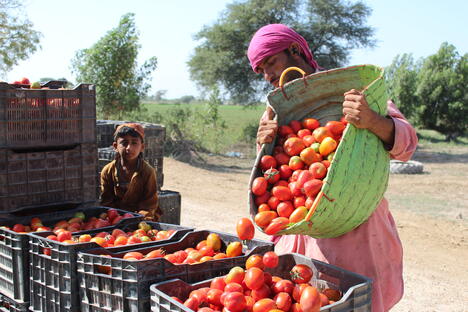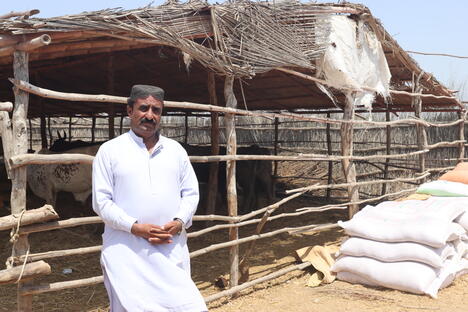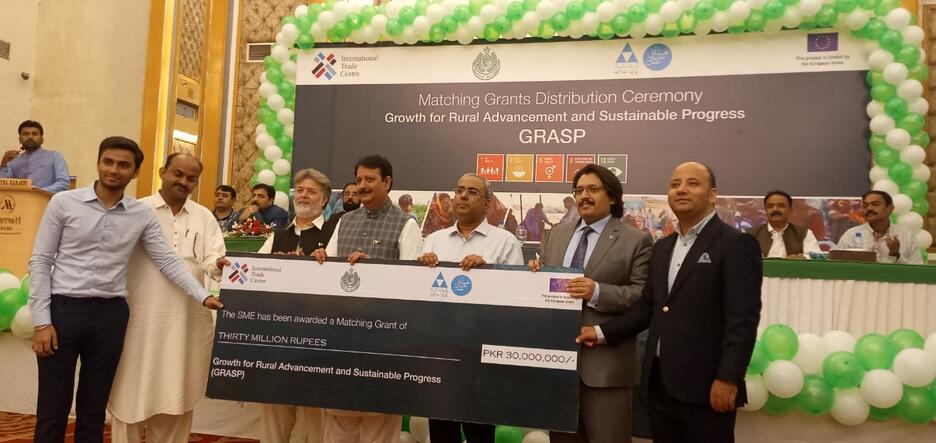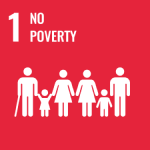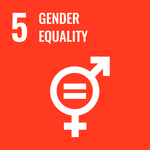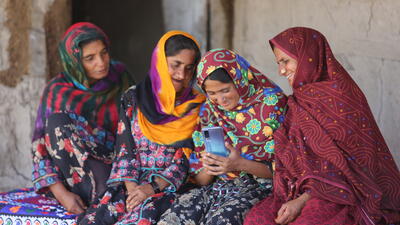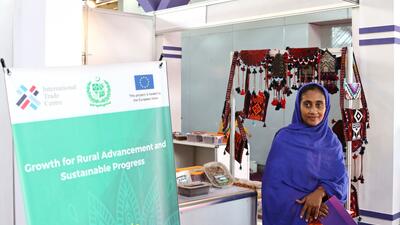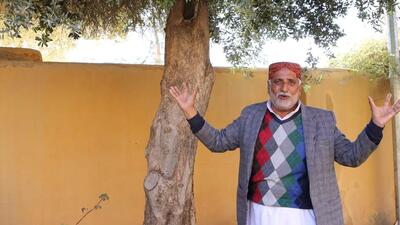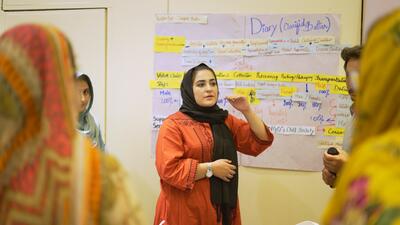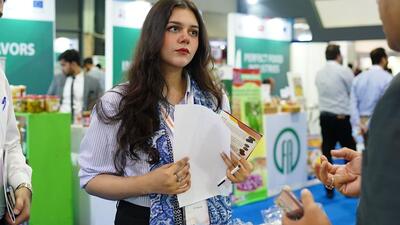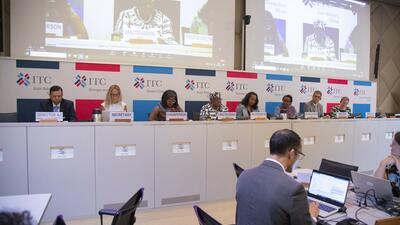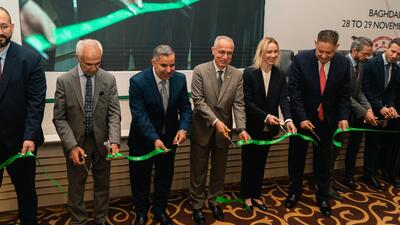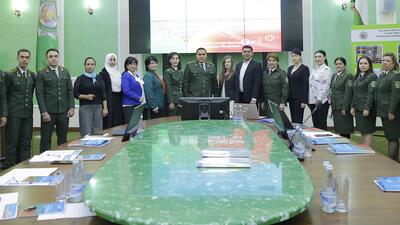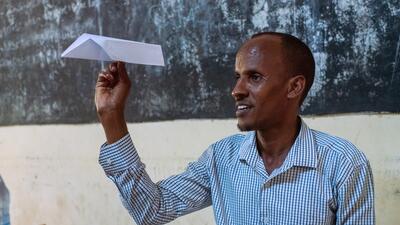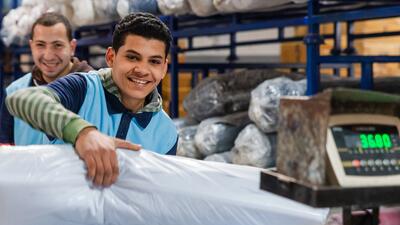
Case study: Matching grants give poor farmers of Pakistan access to finance
The ‘four Cs’ – COVID, climate, conflict and cost-of-living – greatly tested small businesses around the world and set back the Sustainable Development Goals. This case study, from the ITC Annual Report 2022, highlights how the International Trade Centre helped entrepreneurs find new ways to prosperity through trade.
The challenge
Small firms and farmers in the agricultural sector in Pakistan are often unregistered. Misconceptions and lack of awareness of sources of finance prevent such MSMEs from getting the resources they need to expand their business. This is especially true in underserved, remote regions of the country where agri-based MSMEs can remain excluded as untapped potential for inclusion and growth.
The solution
To finance the development needs of farmers and MSMEs, ITC’s Growth for Rural Advancement and Sustainable Progress (GRASP) project has earmarked $5 million for matching grants, through a competitive process. The grants are designed to provide growth capital to MSMEs in the horticulture and livestock sectors, including for the installation of facilities, purchase of equipment and adoption of green technologies.
A matching grant is a transfer of funds to small farmers, producers and MSMEs – that they do not have to repay – that matches their own contribution and is used to boost productivity, integrate into value chains and unlock growth opportunities. The grants, disbursed in partnership with the Pakistan Poverty Alleviation Fund, are distributed in selected districts in Sindh and Balochistan provinces in the south-eastern and south-western regions of Pakistan.
To ensure that rural farmers and MSMEs derive the greatest benefits and impact from these grants, GRASP provides mentoring on developing business plans and improving financial literacy. It also shares best practices on engaging with financial institutions.
The results
So far, 55 matching grants worth $645,455 have been disbursed to MSMEs in Sindh and Baluchistan, including 16 women-owned firms.
Through these grants, GRASP enables market growth in economically vulnerable areas and creates job opportunities. Beneficiaries have also reported greater sales and adoption of green technologies. For example, the introduction of trickle irrigation as an alternative to traditional methods for grape farmers in Balochistan has enabled savings of up to 80% in water use.
Bahauddin Agha, a farmer from Pishin, used a matching grant of 7 million Pakistani rupees ($25,000) to install a drip irrigation system powered by solar panels for his grape nursery:
"I am now getting maximum yields with the least amount of water used; this was unheard of. Neighbouring farms often visit to study the system and are inspired to make the investment. I started off by hiring one person to help exploit my farm, now I am proud to say that six people work with me, and they have bought shares in the farm."
His goal is to expand his nursery and encourage the farming community in Pishin to adopt more sustainable farming practices. With the lack of water in the province, he hopes to raise awareness around the issue of water conservation by developing a model farm.
The future
As GRASP beneficiaries continue to receive matching grants to meet their specific business development needs, more farmers and small firms in the horticulture and livestock sectors will be able to improve their livelihoods – in a sustainable way.




